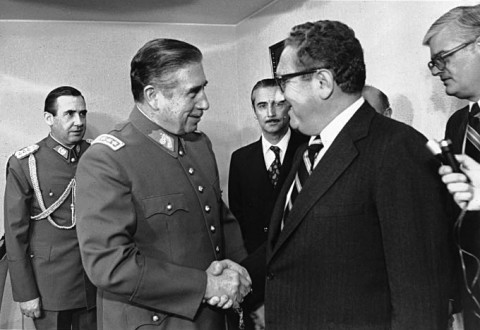Seven days in Chile’s climate of fear
A report from Santiago, five months after the U.S.-backed 1973 military coup by Augusto Pinochet.

Soldiers and carabineros (paramilitary police) seem to be stationed everywhere we go—their submachine guns at the ready. Almost as prevalent are billboards and posters which read: “En cada soldado hay un Chileno; en cada Chileno hay un soldado” (“In every soldier there is a Chilean; in every Chilean there is a soldier”).
Upon arriving at our hotel, we—an ad hoc Chicago-based fact-finding commission concerned about the status of human rights in Chile—are greeted by three women from Santiago’s Christian community. They warn us not to talk with Chileans on the streets—not only because the ruling military junta encourages “patriots” to inform on “suspicious” persons, but because there are many plainclothes intelligence agents around. We invite the three women to join us for dinner, and on the way to a restaurant we note that there would hardly be any strangers to talk with anyway; except for the military, the dimly lit streets are virtually deserted—even though curfew is several hours away.
At the restaurant one of our dinner guests expresses guilt feelings about partaking of what, by her standards, is an expensive meal; she is acutely conscious of the hunger and suffering of the Chilean poor. Though the junta claims to have inflation under control, the cost of a number of basic necessities has skyrocketed in recent weeks; the price of bread, for example, has risen 400 per cent in less than two months. We learn that many families now eat only three or four meals a week. Unemployment is widespread—about 20 per cent; thousands of workers, most of them leftists, were dismissed from their jobs following the coup d’etat of September 11. Wages are fixed by decree, but some workers receive considerably less than the official minimum wage of 18,000 escudos ($24) a month.




